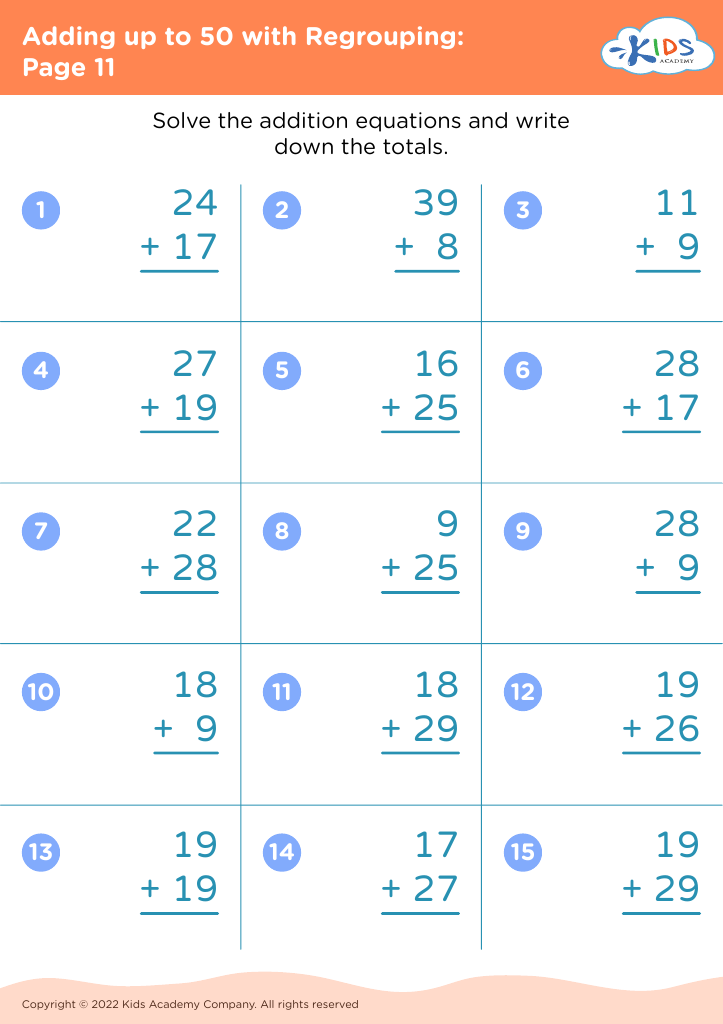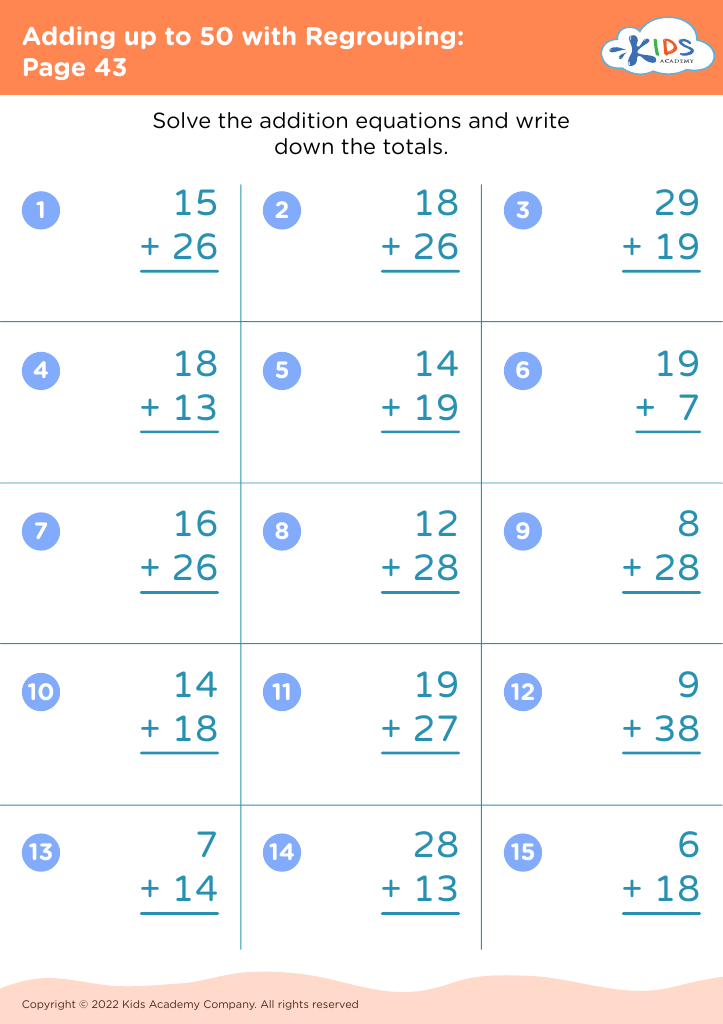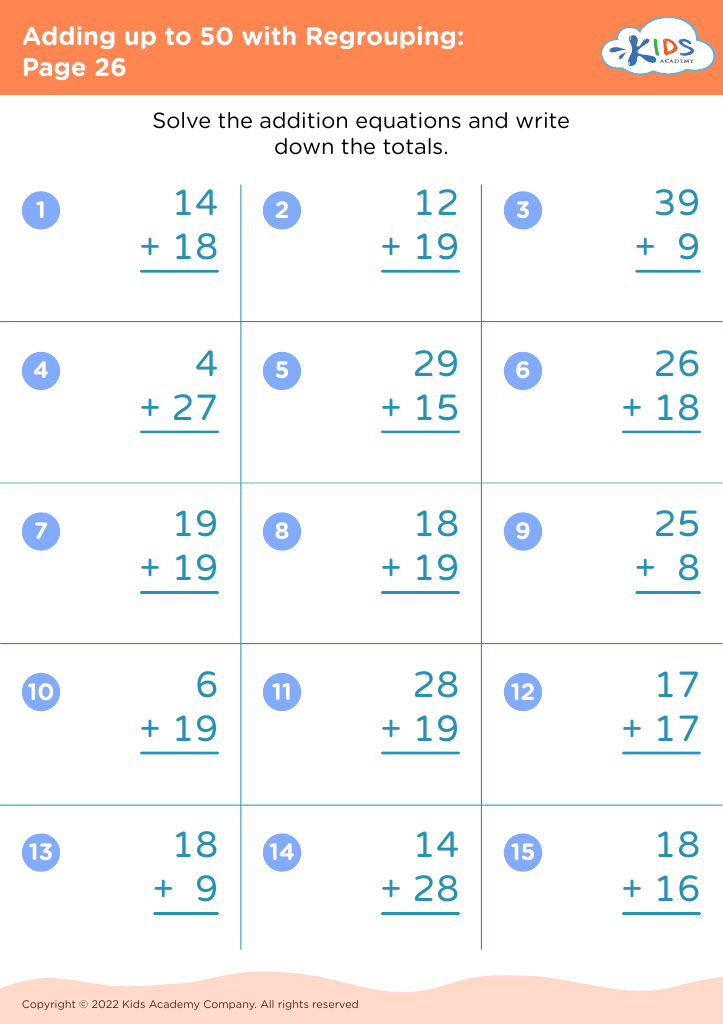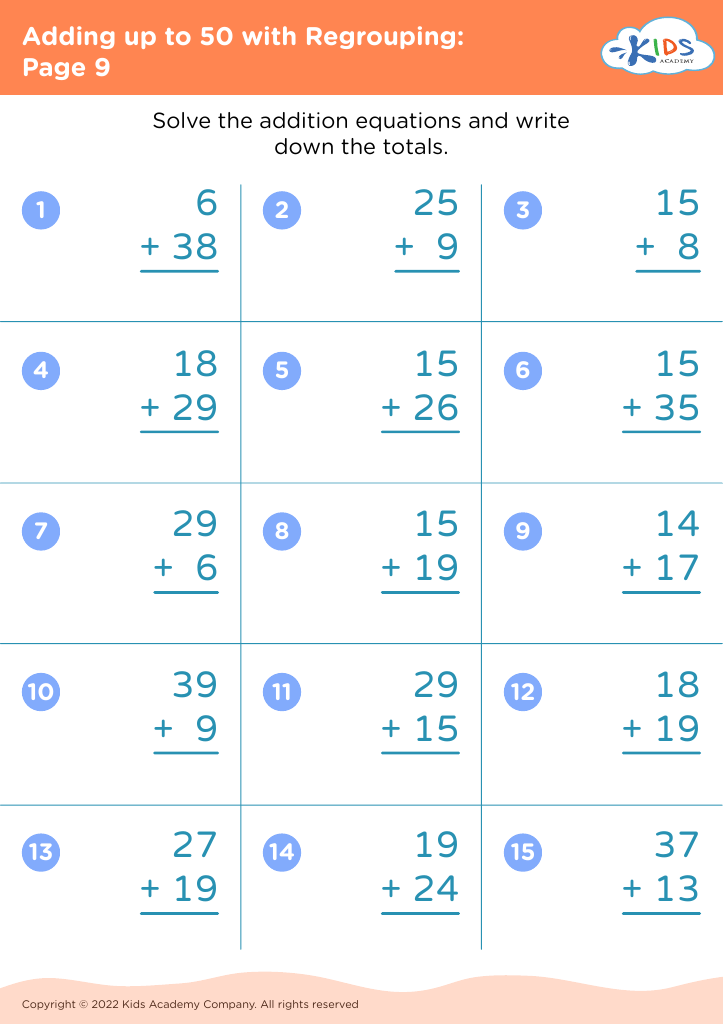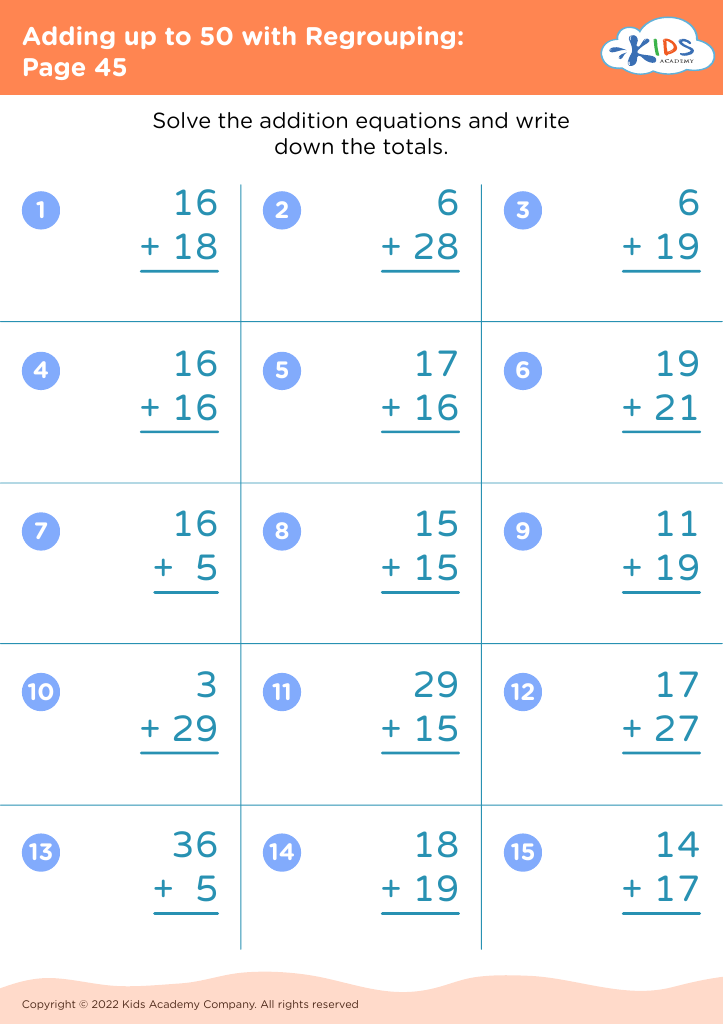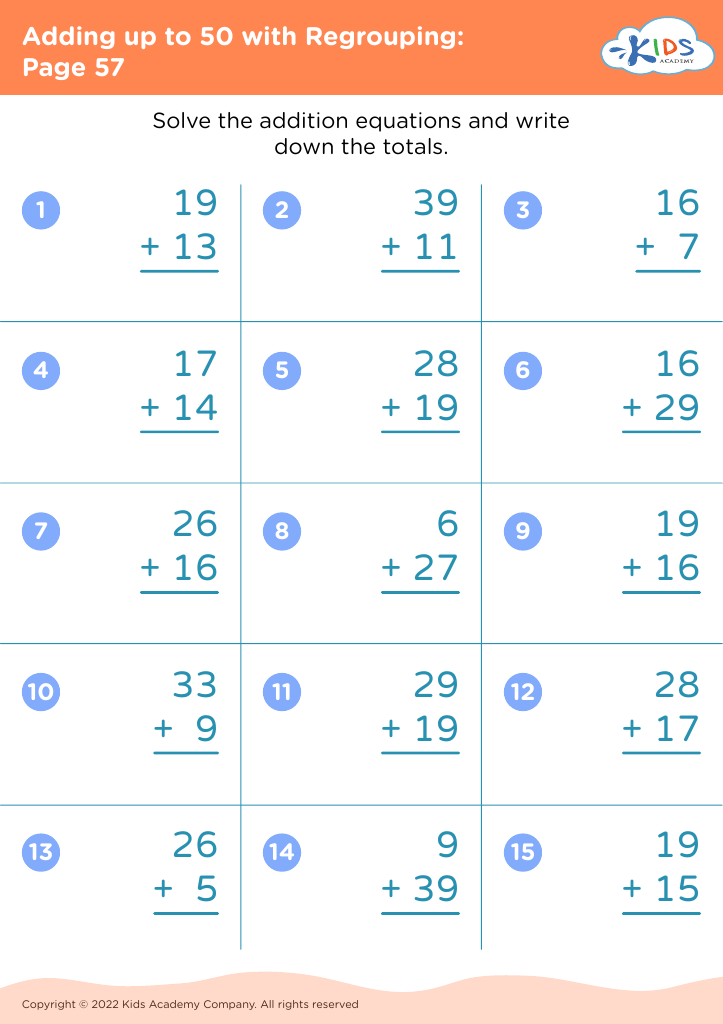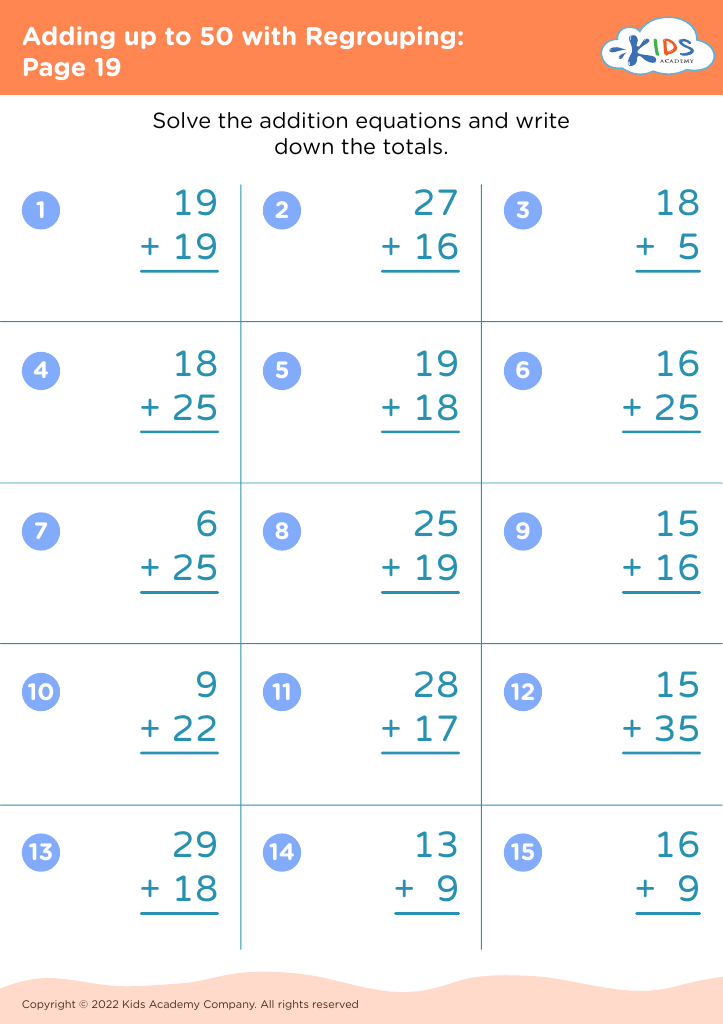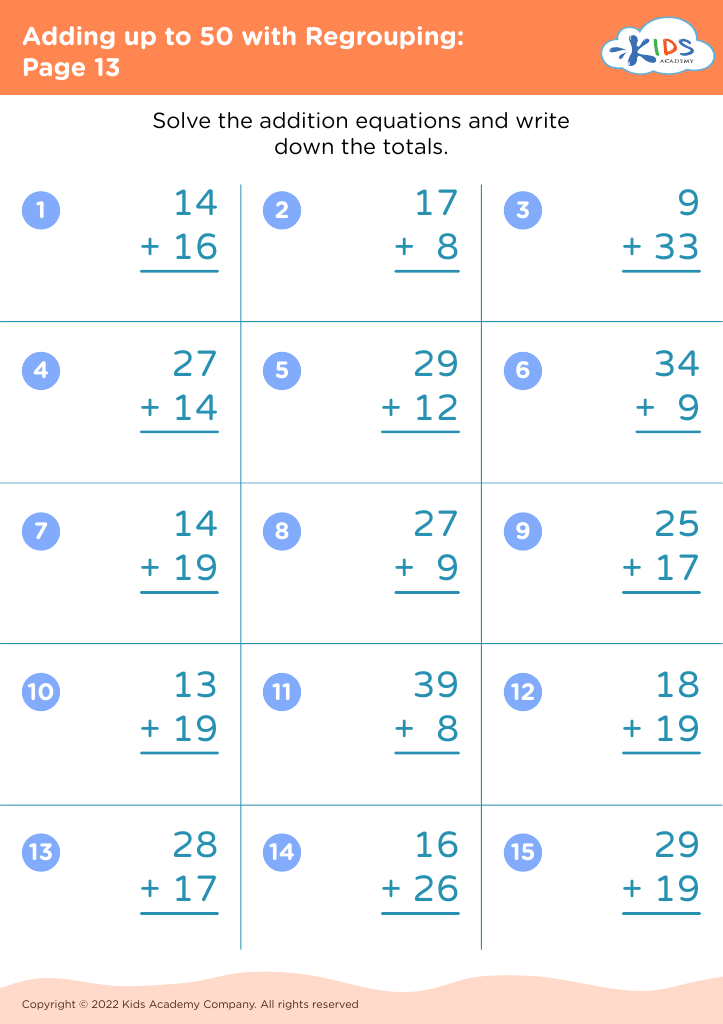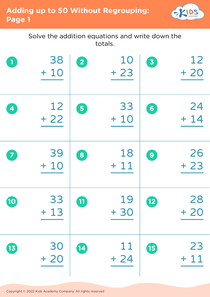Counting skills Adding up to 50 with Regrouping Worksheets for Ages 8-9
13 filtered results
-
From - To
Enhance your child's math proficiency with our "Counting Skills: Adding up to 50 with Regrouping Worksheets for Ages 8-9." These engaging worksheets focus on addition with regrouping, providing essential practice for kids to master counting up to 50. Tailored for young learners, these exercises build fundamental arithmetic skills, boost confidence, and improve problem-solving abilities. Perfect for both classroom use and homeschooling, our expertly designed worksheets make learning fun and efficient. Help your child become a math whiz and excel in their studies with our comprehensive and interactive addition resources! Ideal for children aged 8-9.
Parents and teachers should prioritize teaching counting skills and adding up to 50 with regrouping for children aged 8-9 because it forms a cornerstone of their mathematical development. At this age, children transition from basic counting to more complex computations, laying the groundwork for future arithmetic proficiency. Mastery of regrouping, also known as carrying or borrowing, teaches them the principle of place value—a fundamental concept that underscores all higher mathematical learning.
Learning regrouping builds a child's problem-solving skills, critical thinking, and enhances their ability to understand how numbers interact in additive operations. It also helps children improve their mental math capabilities, allowing them to approach problems more flexibly and efficiently. Developing these skills at an early age boosts their confidence in mathematics, leading to better performance in school and a positive attitude towards the subject.
Moreover, proficiency in these areas is vital for daily life skills such as budgeting and time management, making it imperative for parents and teachers to foster these abilities. By ensuring children are competent in counting and regrouping, we equip them with essential tools that will support their academic journeys and everyday functional needs, thereby setting a solid foundation for their future.


